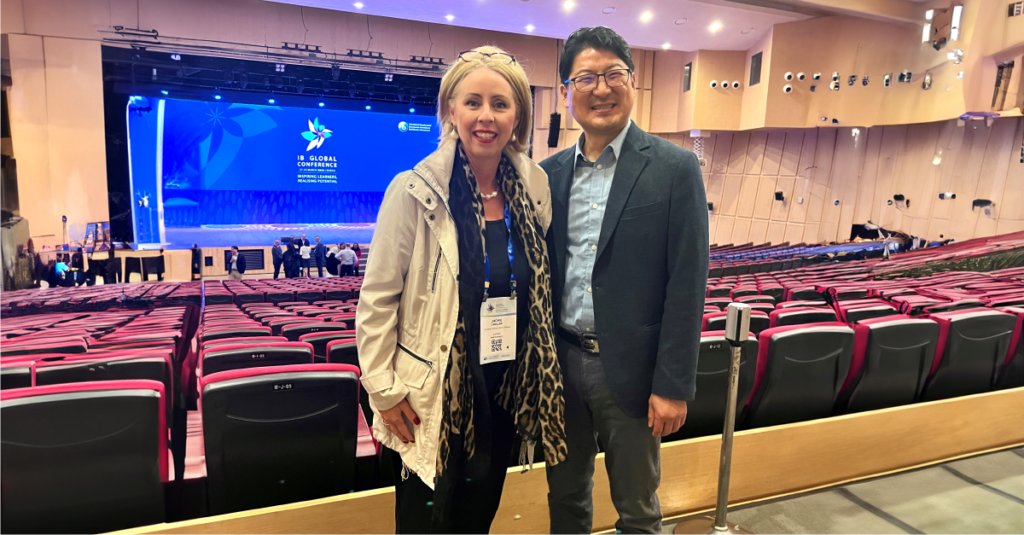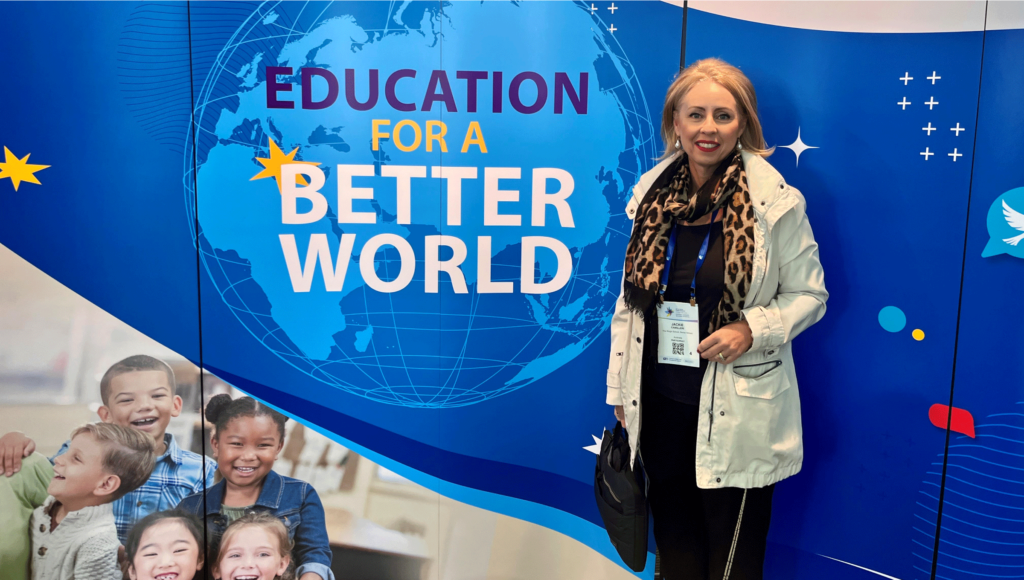In a significant stride towards educational transformation, the International Baccalaureate (IB) programmes are gaining unprecedented momentum in the Asia Pacific, with South Korea now leading the charge. The recent IB Global Conference in Daegu, attended by educators including Deputy Head of Academics, Jackie Camilleri, has marked a pivotal moment in this journey, spotlighting the collaborative efforts and innovative strides within the global IB community.
The conference, celebrated for its resounding success, came at a crucial time as The King’s School gears up to introduce the IB Diploma Programme to students in 2025. This move underscores a growing trend among schools to integrate a global curriculum that fosters critical thinking, creativity, and problem-solving—core tenets of the IB’s educational philosophy.
Worldwide, the adoption of IB programmes is on the rise, with their presence in 158 countries across 5,284 schools. Between 2018 and 2022, the number of IB programmes offered worldwide has grown by 34.2%. The Asia Pacific region, in particular, has embraced the IB’s progressive pedagogy, transitioning from traditional learning methods to a more holistic approach that nurtures adaptive and innovative capabilities essential in today’s knowledge-based economy.
South Korea’s educational revolution is characterised by a significant shift from content-heavy curricula to those emphasising the development of essential learning skills. This evolution is mirrored in the remarkable growth of IB programmes within the country, from 35 to 113, showcasing a model collaboration between the IB and public education authorities to make IB education accessible in the Korean language.
Key advancements include the Memoranda of Cooperation (MOC) signed with the Local Education Agency (LEA) offices of Daegu and Jeju, which underscore a deep commitment to incorporating IB programmes into national public schools. This initiative has led to the introduction of the ‘Dual Language program’, allowing students in public high schools to undertake up to four of the six DP courses in Korean, thus democratising access to the IB curriculum.
The Daegu Metropolitan Office of Education’s proactive efforts to introduce the IB programme into public education have set a precedent, with its affiliated elementary and middle schools becoming the first in Korea to achieve IB international certification as public institutions. This milestone not only broadens educational avenues for students in public sectors but also aligns with the broader objective of internationalising the national curriculum in response to the demands of a rapidly evolving global economy.
The IB’s focus on fostering intercultural understanding, global mindedness, and engaged citizenship aligns perfectly with the educational ambitions of Asia Pacific nations. As global economies and industries become increasingly interconnected, the need for individuals who possess both local insights and a global perspective is more critical than ever.
The adoption of the IB curriculum in South Korea, especially with initiatives like the Dual Language program, sets a benchmark for other countries in the region. By making high-quality international education accessible in the local language, South Korea is not only raising its educational standards but also equipping its students to navigate the complexities of the global landscape effectively.
The IB Global Conference in Daegu has underscored the importance of this new chapter in IB education in Korea, serving as a beacon for how nations can adapt and excel in an interconnected world. It highlights the commitment to nurturing a generation that is not only academically proficient but also globally aware and ready to tackle the challenges of the 21st century. The success of IB programmes in Korea reflects a global movement towards educational systems that prioritise creativity, inquiry, and global citizenship, preparing students for a lifetime of learning and global engagement.
Jackie Camilleri
Deputy Head (Academics)


